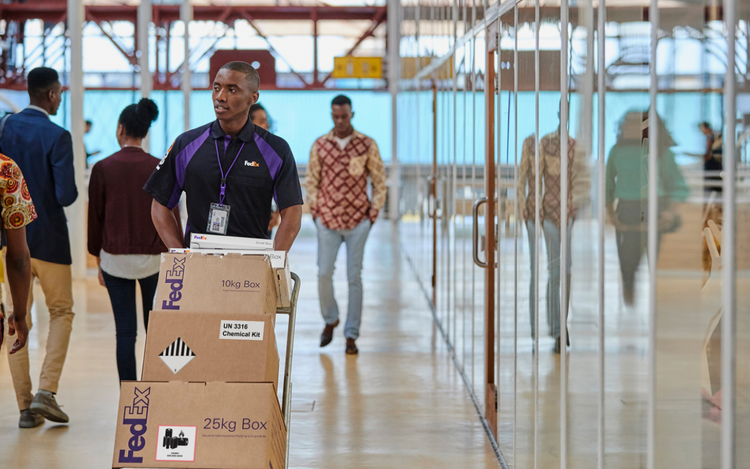
Vietnam is considered to have much potential in the global lithium battery industry. Photo: FedEx
She spotlighted Vietnam’s significant potential to become a regional hub for lithium battery manufacturing and distribution as the country is pushing forward with ambitious renewable energy goals and growing electric vehicle (EV) adoption.
Under the Power Development Plan VIII, Vietnam aims to generate more than 39 percent of its electricity from renewable sources by 2030, and fully transition to EVs by 2050.
Leading market research company IMARC Group forecasts that Vietnam’s lithium-ion battery market will grow at a compound annual growth rate of 10.1 percent between 2025 and 2033, driven by rising demand for EVs and clean energy.
According to Tan, to become a regional lithium-ion battery manufacturing and export hub, Vietnam should build a robust logistics system, especially for transporting lithium batteries, which are classified as Dangerous Goods due to their flammable and explosive nature.
International organizations such as the International Air Transport Association (IATA) and the International Civil Aviation Organization (ICAO) set strict regulations on how lithium batteries must be packed, labeled, documented, and handled.
Vietnamese companies that invest adequately in safe, efficient lithium battery transport will be better positioned to reach and retain global customers, she said.
Global lessons, local ambition
Vietnam can draw inspiration from major lithium battery manufacturing centers around the world.
In China’s Shandong Province, local authorities have invested billions of U.S. dollars to create an integrated supply chain encompassing factories, warehouses, seaports, and airports.
This tightly connected ecosystem reduces costs, accelerates delivery, and enhances safety, all key elements of global competitiveness.
With several localities like Hai Phong, Hanoi, and Ha Tinh attracting major lithium battery investments, Vietnam has a solid foundation.
However, transforming into a true export hub requires coordinated investments in logistics infrastructure.
International logistics companies are already stepping in.
FedEx, for instance, offers specialized Dangerous Goods transport services that include UN-compliant packaging, accurate labeling, and global shipping via its extensive network.
Each year, FedEx safely transports millions of lithium battery shipments used in many sectors ranging from clean energy to healthcare and high technology.
Partnering with such experienced logistics providers allows Vietnamese manufacturers to reduce risks, shorten delivery times, and comply with international regulations – critical factors in maintaining a competitive edge.
To fully capitalize on this opportunity, Tan urged Vietnam to continue investing in logistics infrastructure, enhance workforce training, and streamline regulatory procedures.
These efforts will be essential to build a modern logistics ecosystem that meets global standards.


Max: 1500 characters
There are no comments yet. Be the first to comment.